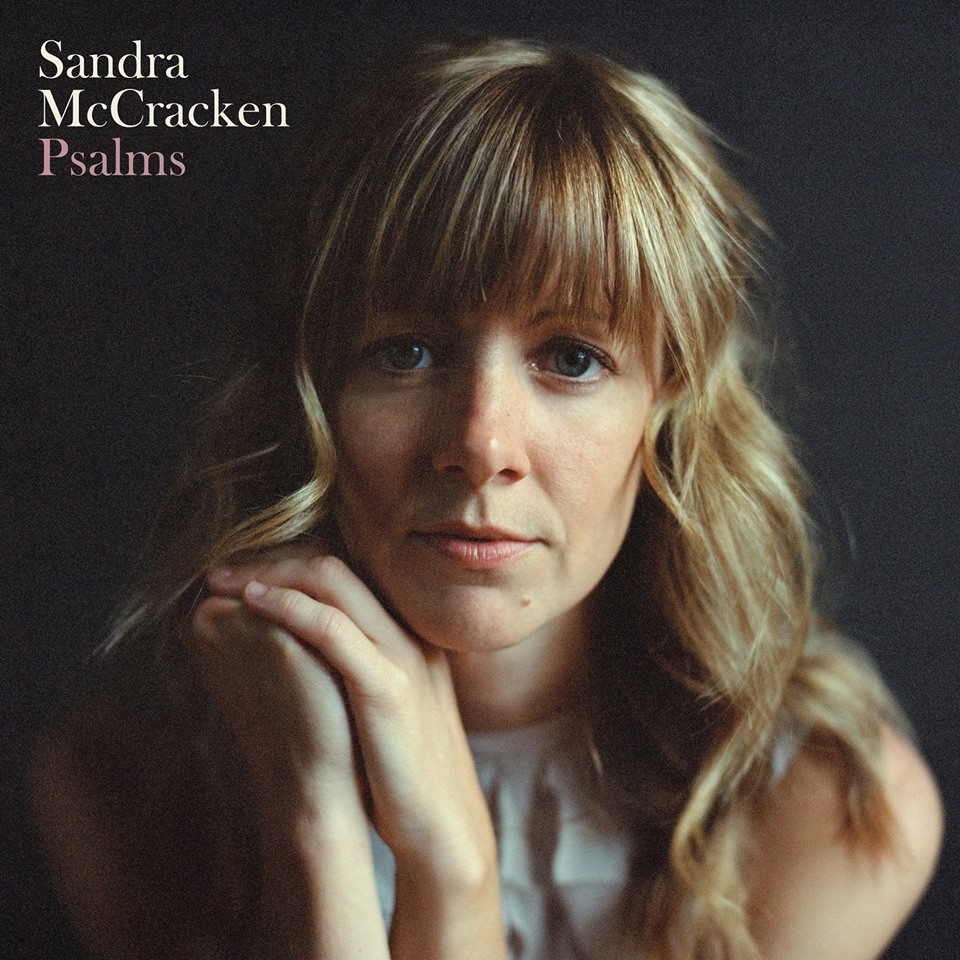Delight. Fear. Anger. Joy. Grief. Gladness. Loneliness. Love. Loss.
This is a small sampling of the range of emotions in life, ones that the Psalms fully describe. While the Psalms allow us to express our emotions they seek to shape them into righteous ones. With the Psalms we can approach God with brutal honesty, seeking to be rooted in truth and ready to submit to him.

Sandra McCracken’s newest album, Psalms, seeks to recast some of these ancient psalms and hymn texts for our day (iTunes | Amazon | Bandcamp). For those who attended TGC’s 2015 National Conference, you’ll recognize McCracken’s song “We Will Feast,” which served as our anthem. Other songs in the album showcase the hope and heartbreak we experience in this world. As McCracken writes,
These are sacred, borrowed words, with new melodies to help draw the longing and joy up out of our hearts and onto our lips, as we watch and wait to see his story come in it’s fullness.
Much like the Psalms, she helps us enter into both the pain of living in a broken world and the joyful hope we have as children of a sovereign God. In this interview we learn how the Psalms give us words when we have none, how lament should be part of our worship, and much more.
It's been said that whereas “most of the Scripture speaks to us, the Psalms speak for us.” In making this album and recasting these psalms, have you found this to be true?
I haven’t heard that phrase before, but the idea immediately resonates with me. The Psalms are by nature invitational. I recently asked a pastor-friend about how he would describe healthy relational intimacy, asking what it looks like within marriage or within close community. He said that the first word he thinks of that displays intimacy between two people is invitation. When God included the poetry of the Psalms in his letter to us, he made a move toward us that invites us more deeply toward him, with our affections and with our emotion.
The Psalms are framed in the context of the law and against a background of historical narrative, and they point more personally and intimately than other books in the Scripture to who we are and who God is. As I have experienced conversation with God through the Psalms in these past couple of years, I find that the invitation is about knowing him and being known by him—as it is embodied in my behavior, my emotions, and my changing circumstances.
You write, “Over these past couple of years, the practice of singing the Psalms has been teaching me how to pray, leaning into a more honest conversation with God through loss and healing. My new album, Psalms, was born out of that practice.” Would you share a bit more of that practice? And how would you encourage other believers to appropriate the Psalms for themselves?
Having an artistic personality type, I tend to have big feelings. Because I work within a creative vocation, I get to explore them fairly regularly in my writing and performing. But even with that vocational permission, I live most of my days on the surface of things. Most of us don’t have much time in the margins to reflect on what we are feeling or how we are acting out of those feelings and values. Often it takes painful life-disruption before we stop and reflect on what’s beneath the surface of the life we have built. We live with patterns of behavior and relate to others without being awake to our real fears or woundedness. In the past two years or so, I have practiced reading the Daily Office (a Christian tradition of reading through the Bible in three-year intervals), which includes a morning and evening psalm each day. I have been amazed at how the readings have faithfully brought perfectly timed perspective and sparked confession, awareness, wisdom, and healing.
I would often sit during these times of meditation with a journal, with my guitar, or at the piano and find that the Psalms gave particular voice to my emotion, my story, and my struggle. The Psalms gave me words when I didn’t have my own words. They prompted me to sing a new song when I couldn’t find my voice. They directed my heart toward God’s faithful, saving love. They have drawn me deeper into a life of gratitude, often by being willing to go deeper into honest sorrow. Through the Scriptures, the Holy Spirit has guided my steps with truth and clarity. The Psalms teach me that I can be safe in his good providence even when everything around and within me feels like chaos. When we hear these ancient words, we are reminded that we are not alone. We are not the first to feel what we feel. There is perspective and humility and honor in joining together with those who have gone before us. And we are also reminded that we will not be defined by our present circumstances, but by the mercy of God who has committed himself to the full restoration of all things.
Your song “My Help My God” is based on Psalm 42, a song of anguish, suffering, and lament, realities not absent from the Christian life. Dan Allender has written,
Christians seldom sing in the minor key. We fear the somber; we seem to hold sorrow in low-esteem. . . . Lament cuts through insincerity, strips pretense, and reveals the raw nerve of trust that angrily approaches the throne of grace and then kneels in awed, robust wonder.
Would you agree with his assessment? And what's your take on incorporating lament in our private and corporate times of worship?
Nicholas Wolterstorf in his book Lament for a Son says, “Every lament is a love song.” Our sorrow is a display of honor, of valuing the loss, of knowing that this is not how things are supposed to be. It is crying out against death and disappointment while declaring the God-given affections of our hearts. There is no resurrection without death. I’ve heard it said that psychologically, you cannot shut off one part of your unpleasant feelings (like sadness) without also shutting off the pleasurable feelings (like happiness). If Jesus comes to offer us abundant life, that means highs and lows, fullness, awake-ness. And awake-full-ness is hard-won. It takes courage and a steady supply of God’s tender mercy, not just to expose our wounds, but also to heal our wounds from the inside out.
Our culture is uncomfortable with extended grief. The church has a responsibility to fight against the dishonesty of living on the surface of things, or encouraging people to put a smile on their faces so they will have a positive attitude about difficult things. As a music minister, I am convinced that the songs that we sing have a role in shaping our hearts, and songs of lament can make space for us to feel more deeply and to speak more honestly before God. We need songs of lament to be part of our church life, every week. In doing so, I hope that we would not be held fast in our complacency, but drawn out of hiding and comforted by our loving, pursuing Father.
What aspect did you find most challenging in this project?
The hardest part of the process was the personal experience of loss that has brought these songs into being. There have been moments when I played Anne Steele hymns or sang “My Help, My God” with tears at my piano. I suppose that is what it means when Jesus says that the seed that falls to the ground and dies, bears much fruit (John 12:24). In this way, in these songs, I am bearing witness to the fruitfulness of God’s work.
There were a thousand provisions along the way that made this recording possible. Borrowing a friend’s apartment in Brooklyn for the recording, guidance from friends and mentors along the way as this took shape as a Psalms project, financial help from my brother with the initial costs, context for the songs within my church, the spirit and thrill of recording and collaborating with the band and the outpouring of support from the community in response to the music while I’ve been on tour. I want to openly celebrate all the big and small elements that have brought this project to fruition. It demonstrates God’s abundance.
What is your favorite song in the album and why?
I have had such joy playing and singing ‘We Will Feast’ with people all over the country this spring on tour with All Sons And Daughters, and hearing from folks who are now also singing that song in their churches. This song propels me forward, into the heart of the promises of God, giving a glimpse of the vision to see what God sees—the final resolution of all things. And it does this with a corporate point of view, inviting us to sing together as a people, to share one voice in loss and life together under the banner of God’s redeeming love.
Sandra has graciously provided a free mp3 file of “We Will Feast,” the PDF booklet for the album, and the lead sheets for all the songs. (download the zip file here)
Other related articles:
Is there enough evidence for us to believe the Gospels?
 In an age of faith deconstruction and skepticism about the Bible’s authority, it’s common to hear claims that the Gospels are unreliable propaganda. And if the Gospels are shown to be historically unreliable, the whole foundation of Christianity begins to crumble.
In an age of faith deconstruction and skepticism about the Bible’s authority, it’s common to hear claims that the Gospels are unreliable propaganda. And if the Gospels are shown to be historically unreliable, the whole foundation of Christianity begins to crumble.



































